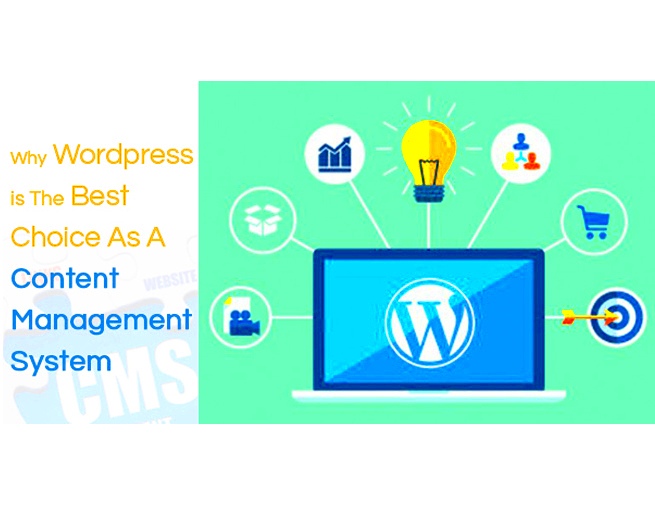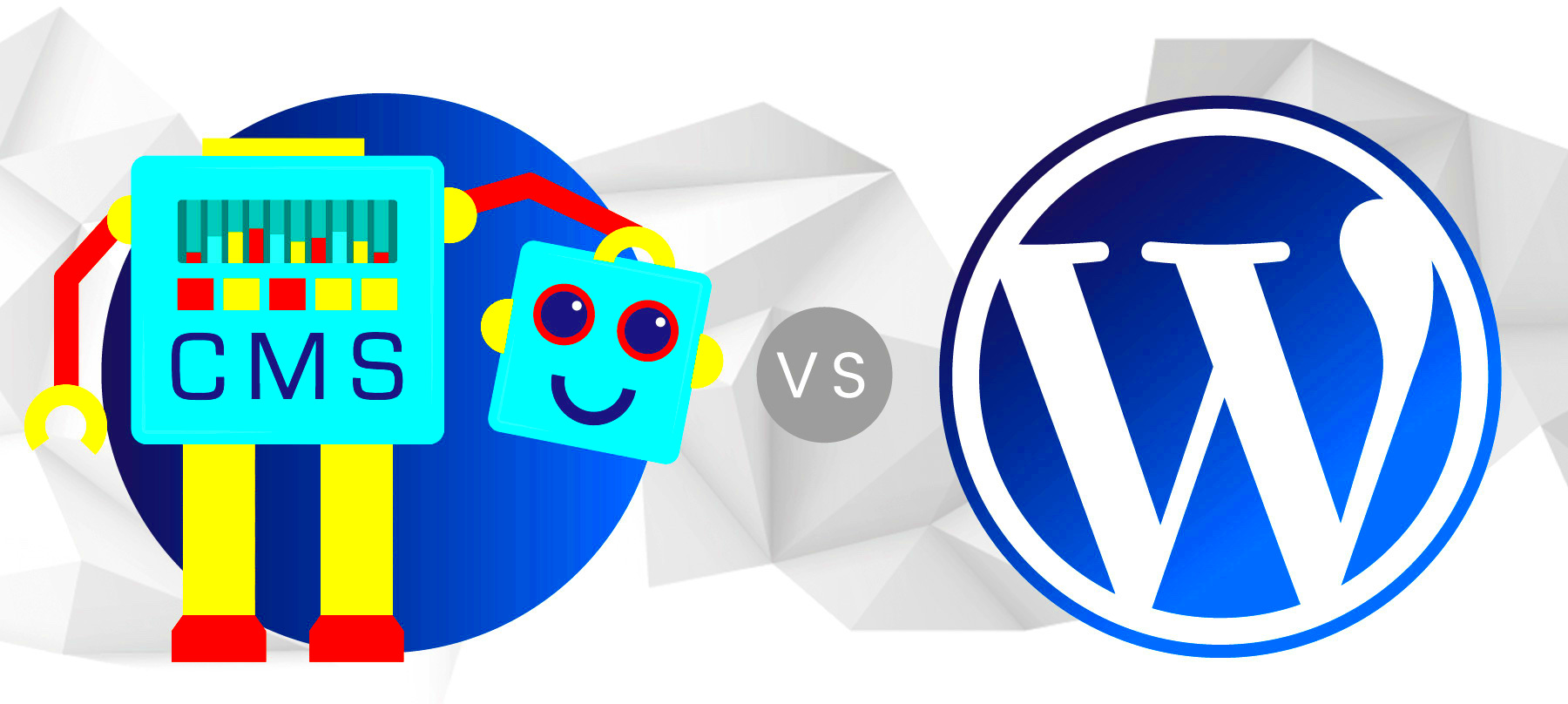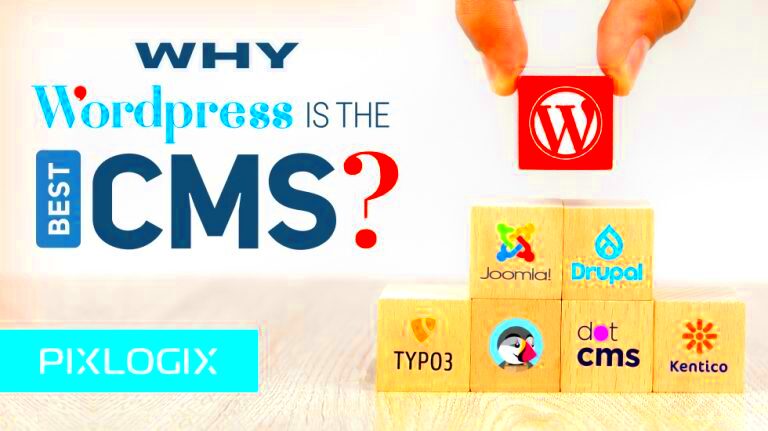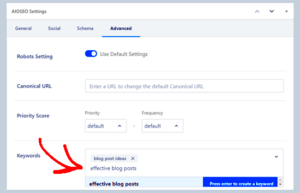When it comes to content management systems, WordPress often stands out as the go-to choice for bloggers, businesses, and creators. But what makes WordPress so special? With its user-friendliness, vast array of features, and robust community support,
History and Evolution of WordPress

WordPress started its journey in 2003 as a simple blogging tool developed by Matt Mullenweg and Mike Little. Back then, it was designed to enhance the blogging experience, focusing on user-friendliness and flexibility.
Here’s a quick rundown of key milestones in WordPress‘s history:
- 2003: WordPress is born, initially as a fork of b2/cafelog.
- 2004: The introduction of plugins allows users to extend the platform’s functionality.
- 2005: WordPress 1.5 is released, featuring a new theme system and a more polished admin interface.
- 2010: The launch of WordPress 3.0 brings multi-site capabilities and custom post types.
- 2015: WordPress 4.2 debuts, enhancing user experience with live previews and improved internationalization.
- 2021: The release of WordPress 5.8 introduces full site editing and block patterns, modernizing the website-building process.
Over the years, WordPress has evolved from a basic blogging platform to a full-fledged content management system, accounting for over 40% of all websites on the internet. This growth is largely due to its dedicated community and ongoing development, which ensures that WordPress remains relevant in the ever-changing digital landscape. Today, businesses ranging from small startups to major corporations rely on
Key Features of WordPress that Stand Out

When it comes to content management systems (CMS), WordPress has carved out a significant niche, thanks to its noteworthy features. Whether you’re a blogger, a business, or an online store owner, WordPress provides some of the best tools to help you succeed. Here’s a breakdown of the standout features that make
- Flexibility and Customizability: With thousands of themes and plugins available, WordPress gives you the freedom to create a website that perfectly fits your needs. Whether you’re after a minimalistic blog or a robust e-commerce site, you can find the right design and features.
- SEO Friendliness: WordPress is built with SEO best practices in mind. Features like customizable URLs, meta tags, and the ability to create XML sitemaps make it easier for search engines to index and rank your site. Plus, there are effective SEO plugins like Yoast SEO.
- Responsive Design: Many WordPress themes are inherently responsive, meaning they automatically adjust to different screen sizes. This is crucial for providing a great user experience on mobile devices, which is increasingly important in today’s mobile-first world.
- User Management: If you run a team, WordPress allows you to create different user roles such as Authors, Editors, and Administrators, ensuring that everyone has the right level of access and capabilities.
- Regular Updates and Security: WordPress is continually updated, which helps in patching vulnerabilities and enhancing features. There’s also a variety of plugins available specifically designed for security to fortify your site.
- Built-in Blogging: At its core, WordPress was designed for blogging. Its robust blogging capabilities include scheduling posts, categorization, and a categorically organized post dashboard.
These features contribute to WordPress’s ongoing popularity, making it a solid choice for anyone looking to manage their content effectively.
Why WordPress is User-Friendly

One of the main reasons WordPress continues to be a top choice for content management is its remarkable user-friendliness. Even if you’re not particularly tech-savvy, you’ll find WordPress to be intuitive and accessible. Here’s why:
- Easy Installation: Setting up a WordPress site is a walk in the park. Most web hosting providers offer one-click installations, meaning you can get your site up and running in just minutes.
- Intuitive Interface: The WordPress dashboard is designed to be user-friendly, simplifying tasks like writing posts, uploading images, or customizing your site’s design. The menu items are clear and categorized logically, which can be a lifesaver for beginners.
- No Coding Required: With WordPress, you don’t need to have coding knowledge to create a stunning website. Drag-and-drop page builders, such as Elementor and WPBakery, allow you to design your layout with just a few clicks.
- Rich Community and Resources: WordPress boasts a massive community of users, developers, and experts. This means a wealth of resources, forums, and tutorials are available to help you troubleshoot any issues. You’re never alone in your journey!
- Multilingual Support: If you operate in different regions or cater to multilingual audiences, WordPress supports multiple languages out of the box. This ensures that everyone can enjoy your content.
- Regular User Feedback Incorporation: WordPress listens to its users. The platform continuously evolves based on community feedback, ensuring that the features you need most are always being updated and improved.
All these aspects come together to ensure that website management is straightforward and enjoyable, enabling you to focus more on creating great content rather than getting bogged down in complicated technicalities.
The Flexibility of WordPress: Themes and Plugins
When it comes to flexibility, WordPress is truly a game-changer. Whether you are setting up a personal blog, an e-commerce store, or a corporate website, WordPress offers an incredible range of themes and plugins that can help you tailor your site to your specific needs.
Themes are essentially the skin of your website, dictating its look and feel. WordPress boasts thousands of both free and premium themes, covering a wide variety of styles and purposes. You can choose a minimalist blog theme, a flashy e-commerce theme, or a corporate theme that speaks to your brand’s identity. The best part? You don’t need to be a coding wizard to customize these themes. Most come equipped with intuitive customization options that make the process as simple as dragging and dropping.
On the other hand, we have plugins, which add functionality to your website. With over 58,000 plugins available in the WordPress repository, you can easily incorporate features like:
- SEO tools
- Social media sharing
- Contact forms
- Online shopping carts
- Analytics tracking
This extensive availability means you can create a highly personalized user experience. Want to add a gallery to showcase your photos? There’s a plugin for that. Need to boost your website speed? There’s a plugin for that, too!
Ultimately, the flexibility offered by WordPress through its themes and plugins empowers users to build websites that truly reflect their objectives and creativity. With endless combinations at your disposal, your online presence can stand out exactly the way you envision.
SEO Benefits of Using WordPress
In the competitive online environment, having a website is not enough; your site needs to be discovered, and that’s where SEO—or Search Engine Optimization—comes into play. One of the standout advantages of using WordPress is its inherent SEO-friendly features.
Right off the bat, WordPress offers clean code that helps search engines easily crawl your site. Additionally, it allows for the use of SEO plugins like Yoast SEO and All in One SEO Pack. These tools simplify the process of optimizing your content and offer suggestions for improvement, like keyword density and readability scores. Here’s what you can gain:
- Automated sitemap generation
- Title and meta description optimization
- Focus keyword implementation
- Readability checks
Moreover, WordPress supports responsive design, which is crucial since Google favors mobile-friendly sites. By choosing a responsive theme, your website provides a great user experience across various devices, contributing positively to your search rankings.
The platform also minimizes website loading times, another essential element for good SEO. Research shows that even a one-second delay in loading time can lead to visitors bouncing off your site. WordPress offers various caching plugins that optimize your site speed with a few clicks.
Lastly, WordPress allows for easy integration with social media channels, enhancing your site’s reach and authority. By sharing your content and gaining backlinks, you improve your SEO ranking without overly complicating your marketing strategy.
In summary, when it comes to enhancing your SEO efforts, WordPress can be your best friend, equipping you with the tools and features necessary to improve your site’s visibility and performance in search engines.
7. Community Support and Resources
One of the standout features of WordPress is its vibrant community support and extensive resources available for users at all levels. The strength of the WordPress community cannot be overstated; it’s like having a network of friends ready to help you with your website needs!
When you’re facing a problem, you can tap into a treasure trove of resources:
- Forums and Discussion Groups: The official WordPress support forums are bustling with activity. You can find answers to your questions by browsing existing threads or starting a new one to engage with other users.
- Tutorials and Documentation: WordPress.org offers comprehensive documentation. Whether you need basic instructions or advanced coding tips, you can find a tutorial to guide you through the process.
- Meetups and WordCamps: Local meetups and WordCamps are fantastic opportunities to learn and network with other WordPress users. These events happen all over the world and bring together hobbyists and professionals alike.
- Social Media Groups: Platforms like Facebook and Reddit host several active WordPress groups where users can share tips, ask questions, and offer support.
Additionally, the sheer number of developers and designers specializing in WordPress means that you’re almost guaranteed to find someone who can assist you when you need expert help. So whether you’re a beginner or a seasoned pro, the resources and community around WordPress are there to support you every step of the way.
8. Security Features of WordPress
Security is a top concern for anyone managing a website, and WordPress has made significant strides in enhancing its security features to protect users. While no CMS is entirely immune to threats, WordPress provides various tools and practices to safeguard your content effectively.
Here are some key security aspects that make WordPress a reliable choice:
- Regular Updates: WordPress frequently updates its core software, plugins, and themes to address vulnerabilities. It’s crucial for users to keep their installations updated to benefit from these security patches.
- Secure Passwords and User Roles: WordPress encourages users to create strong passwords and offers customizable user roles that help manage permissions, limiting access to sensitive areas of your site.
- Security Plugins: A range of security plugins, such as Wordfence and iThemes Security, can add extra layers of protection. These tools can help monitor activity, block malicious attacks, and even scan for malware.
- Two-Factor Authentication: Implementing two-factor authentication adds an essential layer of security. It requires users to provide two forms of identification before accessing their accounts, making unauthorized access exceedingly difficult.
- SSL Certificates: Enabling SSL on your WordPress site encrypts data exchanged between users and your server, enhancing security and improving SEO rankings.
While challenges can arise, knowing these built-in security features gives you peace of mind. Taking proactive measures with these tools can make your WordPress site a fortress, allowing you to focus on creating great content instead of worrying about potential threats.
Real-Life Use Cases: Successful Websites Powered by WordPress
WordPress isn’t just a platform; it’s a robust ecosystem that powers millions of websites around the globe. From personal blogs to large corporate sites, WordPress has proven its versatility time and again. Let’s take a closer look at some noteworthy real-life examples of successful websites powered by WordPress.
1. The New Yorker: Known for its in-depth journalism and thought-provoking commentary, The New Yorker utilizes WordPress to deliver engaging content and a seamless reading experience. Their clean design allows readers to focus on the stories that matter.
2. BBC America: This popular cable network showcases a variety of entertainment content on its WordPress site, ranging from show summaries to engaging videos. Its responsive design ensures that users can easily access content from any device.
3. Variety: This entertainment industry news source has embraced WordPress to keep its users updated on the latest in film, TV, and music. The site’s sleek design and efficient content management ensure that news is published promptly.
4. Beyoncé: The iconic singer uses WordPress to host her official website, which showcases her music, videos, and philanthropic efforts. It’s the perfect platform for a multifaceted artist to connect with fans.
5. Mercedes-Benz: The luxury automobile brand leverages WordPress for its site, highlighting the latest car models and news in a visually stunning manner. The combination of rich imagery and informative content makes it an engaging experience.
These examples reflect how diverse organizations and personalities can harness the power of WordPress to create impactful websites. Whether you’re a small business, a global brand, or an individual artist, WordPress offers the tools you need to shine online.
Comparing WordPress with Other Content Management Systems
When it comes to choosing a Content Management System (CMS), many options exist, each with its unique strengths and weaknesses. However, WordPress consistently stands out as a leading choice for several reasons. Let’s take a moment to compare WordPress with other popular CMS options, so you can understand why it might be the best fit for your needs.
1. WordPress vs. Joomla: Joomla is certainly a powerful CMS; however, it has a steeper learning curve compared to WordPress. WordPress is user-friendly, making it accessible for beginners, while Joomla may require more technical knowledge to harness its full potential. Lists of extensions and themes are abundant in both, but WordPress offers considerably more options.
2. WordPress vs. Drupal: Drupal is often favored by developers for its customizable capabilities and robust security features. However, WordPress wins the battle for ease of use and quicker setup. While Drupal can handle complex storage requirements, WordPress provides a more straightforward approach for content creators, ideal for blogs and informational sites.
3. WordPress vs. Wix: Wix is a popular website builder that’s visually oriented, making it simple for non-tech savvy users to create sites. Yet, it lacks the extensive plugins and themes that WordPress boasts. WordPress users also have the benefit of being in total control of their hosting and SEO.
4. WordPress vs. Shopify: While Shopify is tailored specifically for e-commerce, WordPress can be equally efficient with the right plugins, like WooCommerce. For those who wish to blend an online retail component with rich content or blogging, WordPress is a versatile choice.
Choosing the right CMS often boils down to your specific needs and goals. If you want flexibility, user-friendliness, and a vast support community, WordPress remains a top contender in the CMS landscape.
Future of WordPress: What’s Next?
With such an impressive track record, many people wonder what the future holds for WordPress. As we look ahead, a few key trends and developments are shaping the roadmap of this popular Content Management System (CMS).
One of the exciting areas of growth for WordPress is block editing. The introduction of the Gutenberg editor has transformed the way users create content. Future updates are likely to make block editing even more intuitive, enabling smoother drag-and-drop capabilities and enhancing overall usability.
Another trend to keep an eye on is performance optimization. As websites become increasingly content-heavy, the demand for speedy loading times is rising. WordPress developers are focusing on implementing best practices like lazy loading images, better caching solutions, and more efficient database management to enhance site performance.
Moreover, there’s a strong push toward increased security. As cyber threats evolve, so do the strategies to combat them. We can expect to see enhanced security features in WordPress, such as more robust user authentication processes and advanced security plugins to protect sites from vulnerabilities.
Lastly, the integration of artificial intelligence (AI) and machine learning into WordPress could revolutionize usability. Imagine using AI to automatically optimize content or receive smart recommendations for SEO improvements!
All in all, the future of WordPress seems bright, constantly adapting and evolving to meet the needs of its users while focusing on performance, security, and innovation. Stay tuned because WordPress is just getting started!
Conclusion: Why Choose WordPress for Your Content Management Needs
So, why should you choose WordPress for your content management needs? In a world brimming with options, WordPress stands out for several compelling reasons:
- User-Friendly Interface: Regardless of your tech skills, WordPress is designed to be accessible. The dashboard is intuitive, making navigation a breeze.
- Flexible Customization: With thousands of themes and plugins, you can tailor your site to reflect your brand’s personality and improve functionality.
- SEO Friendly: WordPress offers various tools and plugins to boost your site’s visibility, crucial for reaching a wider audience.
- Community Support: An active community means you’re never alone. Resources, forums, and support networks abound, making troubleshooting easy.
- Regular Updates: WordPress is continuously improved and updated, ensuring your site remains secure and up-to-date with the latest tech trends.
In conclusion, WordPress remains a top choice for content management because it’s reliable, scalable, and backed by a strong community. Whether you’re a seasoned web designer or a complete newbie, WordPress provides the tools and support you need to create a stunning online presence. So, if you’re contemplating a CMS, WordPress is undoubtedly worth considering!



